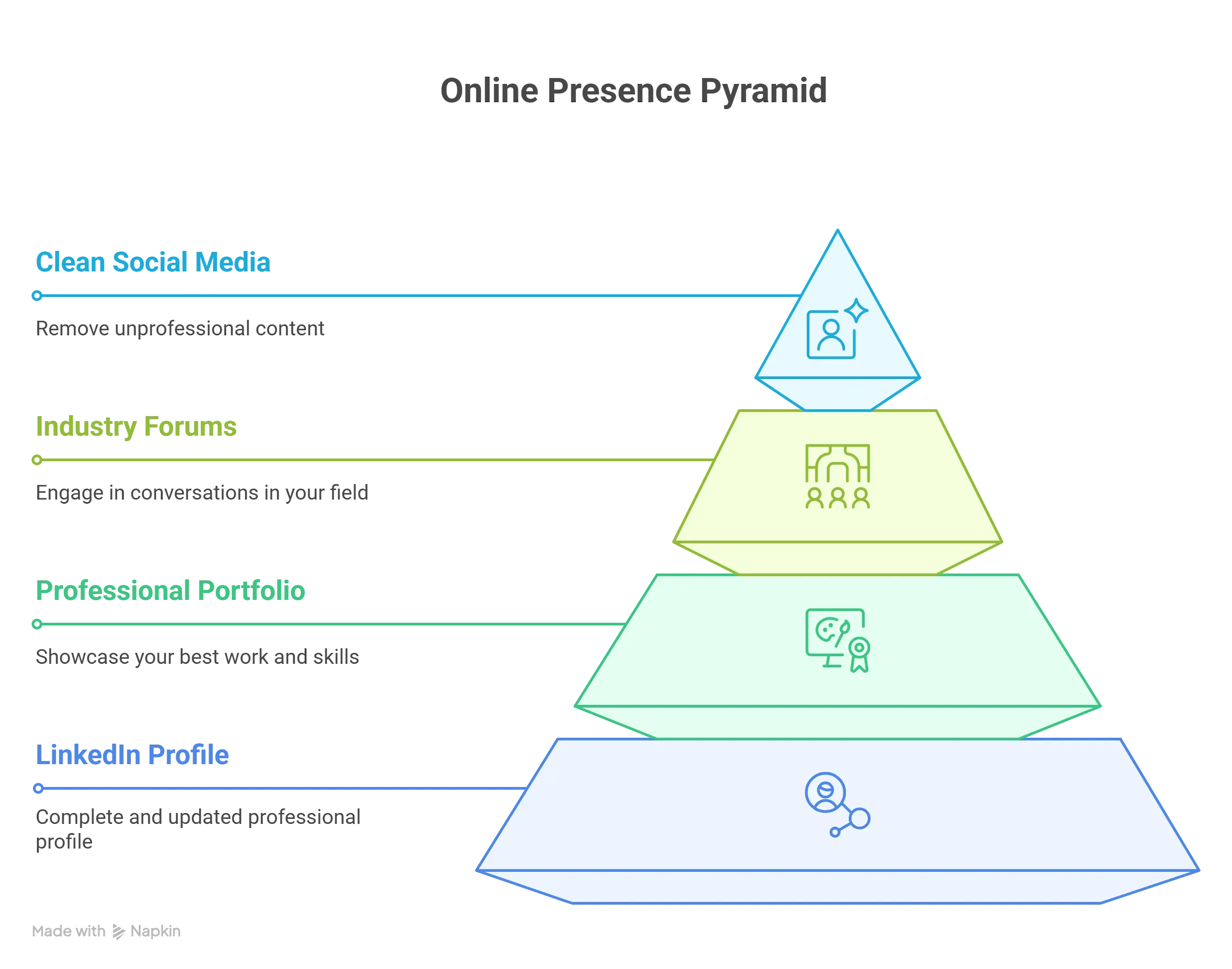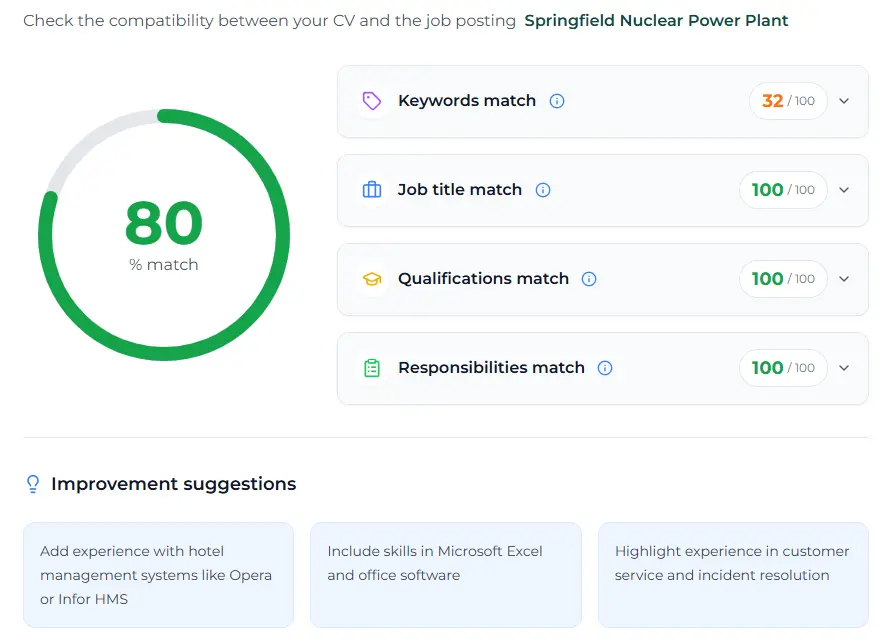
Finding a job today isn't about sending hundreds of applications and hoping for the best. You need a smart job hunting strategy that actually works. The good news? A well-planned approach can cut your search time in half and land you better opportunities.
This guide shows you exactly how to build an effective job hunting strategy that gets results. We'll cover everything from planning your search to managing your mental health during the process.
Know What You Want Before You Start
Most people skip this step and waste months applying for the wrong jobs. Before you send a single application, get clear on what you're actually looking for.
Ask yourself these questions:
- What specific role do I want?
- What industry appeals to me most?
- What salary range do I need?
- Do I want remote, hybrid, or office work?
Write down your answers. This becomes your job search compass. When you're clear on your goals, you can focus your energy on the right opportunities instead of wasting time on jobs that aren't a good fit.
If you're changing careers, check out our transferable skills guide to identify what you bring from your previous experience.
Plan Your Time Like a Pro
Job hunting techniques that work best involve using multiple approaches at once. Here's how successful job seekers split their time:
| Activity | Time to Spend | Why It Works |
|---|---|---|
| Networking | 40% | Most jobs come from connections |
| Direct company outreach | 25% | Shows initiative and interest |
| Job board applications | 20% | Covers public opportunities |
| Working with recruiters | 15% | Access to hidden jobs |
Notice that online applications are only 20% of your time. That's because networking is how most people actually get hired. Our LinkedIn guide shows you exactly how to network effectively online.
Research Before You Apply
Best job hunting strategies always include research. You want to know which companies are hiring, what they're looking for, and what they pay.
What to research:
- Company news and recent projects
- Who works there (check LinkedIn)
- Salary ranges for your target role
- What skills they value most
This research helps you write better applications and have smarter conversations in interviews. Plus, you'll know which companies to avoid.
For tech professionals, our 2025 tech job market analysis reveals which skills and roles are in highest demand right now.
Build Your Online Presence
Your online presence works for you 24/7. Even when you're sleeping, recruiters might be finding your profile and considering you for opportunities.
Focus on these platforms:
- LinkedIn: Complete profile with recent updates
- Professional portfolio: Showcase your best work
- Industry forums: Join conversations in your field
- Clean social media: Remove anything unprofessional
The goal is to make it easy for the right opportunities to find you. When someone searches for your skills, you want to show up.
Looking for remote work? Our remote developer guide has specific tips for building an online presence that attracts remote employers.

Apply Smarter, Not Harder
Quality beats quantity every time. Effective job hunting strategies focus on sending fewer, better applications rather than blasting your resume everywhere.
For each application:
- Read the job description carefully
- Customize your resume for that specific role
- Write a targeted cover letter
- Follow up after one week
This takes more time per application, but your response rate will be much higher. Five good applications beat fifty generic ones.
Need help with the technical side? Our application optimization guide covers resume formatting, ATS systems, and writing that gets noticed.
Take Care of Your Mental Health
Job searching is stressful. Rejection hurts, and uncertainty is exhausting. Job hunting techniques that ignore this reality set you up for burnout.
Protect your mental health by:
- Setting a daily routine with breaks
- Celebrating small wins (like getting responses)
- Talking to friends and family for support
- Exercising and maintaining hobbies
Remember: rejection isn't personal. Companies reject great candidates for all sorts of reasons that have nothing to do with your worth as a person.
According to research from career wellness experts, job seekers who maintain structured routines and social connections experience significantly less anxiety during their search process.
Use Technology to Your Advantage
Best job hunting strategies now include smart use of technology. The right tools can save you hours and improve your results.
Helpful tools include:
- Job alerts: Get notified when relevant positions open
- Application tracking: Keep organized with spreadsheets or apps
- Resume scanners: Check if your resume passes ATS systems
- Interview practice: Use AI tools to practice common questions
Our AI-powered job search platform combines these tools into one system that helps you stay organized and competitive.

Network Without Being Annoying
Networking gets a bad rap because people do it wrong. Good networking is about building real relationships, not just asking for favors.
How to network effectively:
- Offer help before asking for it
- Ask about their work, not just job openings
- Share useful articles or insights
- Stay in touch even when you're not job hunting
The goal is to become someone people think of when opportunities arise. That happens when you're genuinely helpful and interested in others.
Research from CNBC indicates that 70% of professional positions are never publicly advertised, making networking essential for accessing the "hidden job market."
Track What's Working
You can't improve what you don't measure. The most effective job hunting strategies include tracking your results so you know what's working and what isn't. A job application tracker can help you organize every opportunity and visualize your entire pipeline at a glance.
Key numbers to track:
- How many applications you send
- How many responses you get
- How many interviews you land
- How many offers you receive
If your response rate is low, improve your applications. If you're getting interviews but no offers, work on your interview skills. Data tells you where to focus your efforts.
Adjust your strategy for job hunting based on real results, not guesses about what might work.
Adapt Your Approach by Industry
Best job hunting strategies recognize that different industries work differently. What gets you hired at a startup won't necessarily work at a Fortune 500 company.
Industry considerations:
- Tech: Show your code, contribute to open source projects
- Finance: Emphasize numbers, certifications, and compliance knowledge
- Healthcare: Highlight patient care experience and continuing education
- Creative fields: Portfolio quality matters more than resume format
Research how hiring works in your target industry. Talk to people who work there to understand what employers really value.
Looking for companies with good work-life balance? Our guide to top tech employers identifies companies that prioritize employee wellbeing.
Keep Building for the Future
Smart job hunting techniques don't stop when you get hired. The best professionals are always building relationships and skills for their next opportunity.
Even when employed:
- Keep learning new skills
- Maintain your professional network
- Update your LinkedIn profile regularly
- Stay visible in your industry
This approach means you're never starting from scratch when you need to look for work. Your next job search will be faster and less stressful.
Your 8-Week Action Plan
Here's a realistic timeline for implementing these job hunting techniques:
Weeks 1-2: Get Ready
- Define your job search goals
- Update your resume and LinkedIn
- Set up tracking systems
- Research target companies
Weeks 3-6: Take Action
- Start networking conversations
- Send targeted applications
- Connect with recruiters
- Share content online
Weeks 7-8: Manage Your Pipeline
- Handle multiple interview processes
- Negotiate offers carefully
- Keep networking and applying
- Plan your successful transition
Frequently Asked Questions
How long does a strategic job search usually take?
Most job hunting strategies take 3-6 months for professional roles. Senior positions often take longer. The key is staying consistent with your activities, not just waiting for responses.
What's the most important part of job hunting?
Networking consistently produces the best results, but the most effective job hunting strategies combine networking with strong applications and good interview skills.
How do I stay motivated during a long search?
Set daily and weekly activity goals you can control. Celebrate when you send applications, have good conversations, or learn something new. Don't just focus on outcomes like offers.
Should I try multiple approaches at once?
Yes. Best job hunting strategies use several channels because different jobs come from different sources. Spend most of your time networking, but don't ignore other opportunities.
How do I know if my strategy is working?
Track your response rates and interview conversion. If you're not getting responses after 2-3 weeks of consistent effort, adjust your targeting or improve your application materials.
What's the biggest mistake job hunters make?
Relying only on online applications. The most effective job hunting strategies prioritize building relationships alongside submitting applications online.